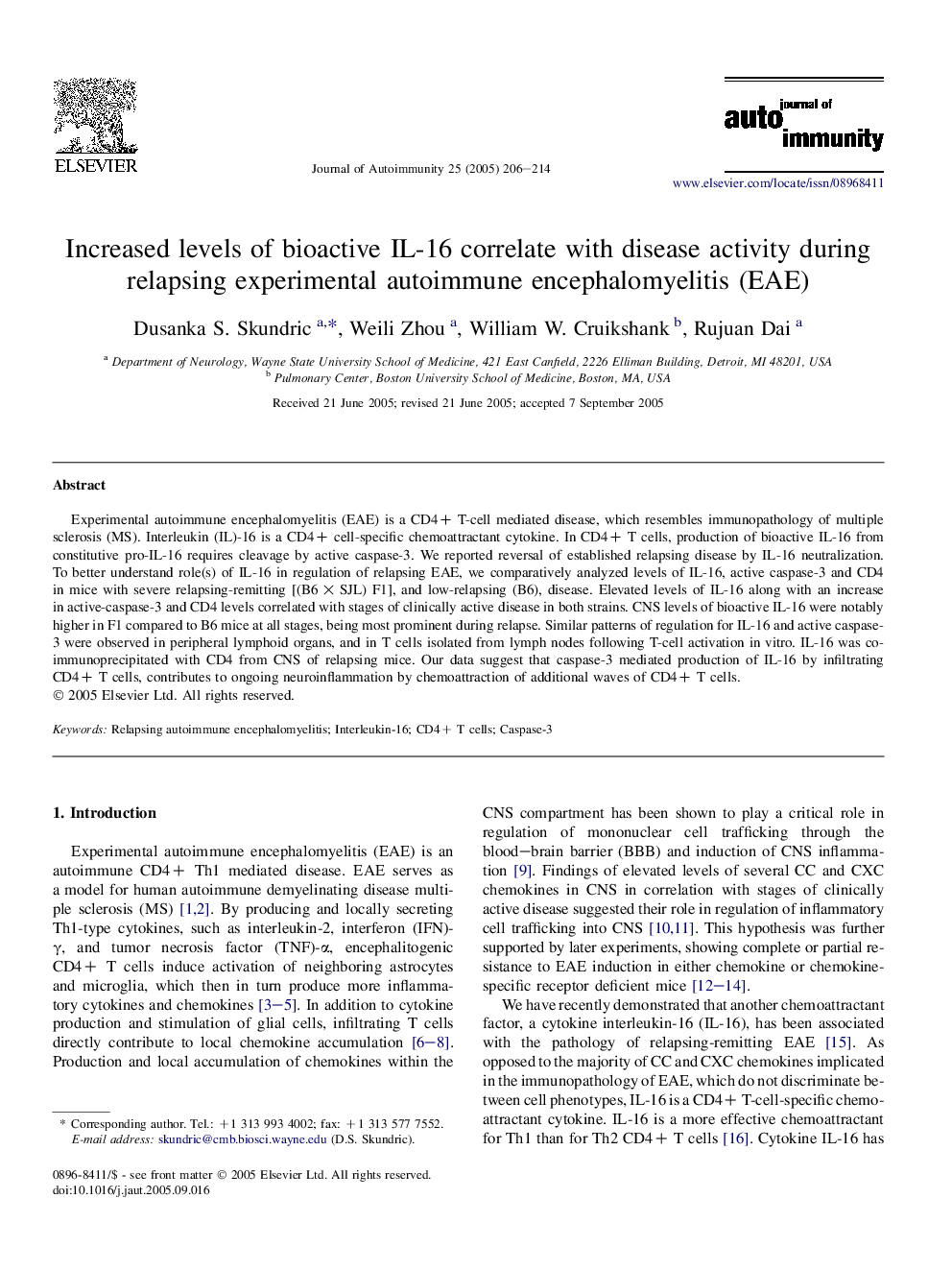| Article ID | Journal | Published Year | Pages | File Type |
|---|---|---|---|---|
| 9267894 | Journal of Autoimmunity | 2005 | 9 Pages |
Abstract
Experimental autoimmune encephalomyelitis (EAE) is a CD4+ T-cell mediated disease, which resembles immunopathology of multiple sclerosis (MS). Interleukin (IL)-16 is a CD4+ cell-specific chemoattractant cytokine. In CD4+ T cells, production of bioactive IL-16 from constitutive pro-IL-16 requires cleavage by active caspase-3. We reported reversal of established relapsing disease by IL-16 neutralization. To better understand role(s) of IL-16 in regulation of relapsing EAE, we comparatively analyzed levels of IL-16, active caspase-3 and CD4 in mice with severe relapsing-remitting [(B6Â ÃÂ SJL) F1], and low-relapsing (B6), disease. Elevated levels of IL-16 along with an increase in active-caspase-3 and CD4 levels correlated with stages of clinically active disease in both strains. CNS levels of bioactive IL-16 were notably higher in F1 compared to B6 mice at all stages, being most prominent during relapse. Similar patterns of regulation for IL-16 and active caspase-3 were observed in peripheral lymphoid organs, and in T cells isolated from lymph nodes following T-cell activation in vitro. IL-16 was co-immunoprecipitated with CD4 from CNS of relapsing mice. Our data suggest that caspase-3 mediated production of IL-16 by infiltrating CD4+ T cells, contributes to ongoing neuroinflammation by chemoattraction of additional waves of CD4+ T cells.
Keywords
Related Topics
Life Sciences
Immunology and Microbiology
Immunology
Authors
Dusanka S. Skundric, Weili Zhou, William W. Cruikshank, Rujuan Dai,
